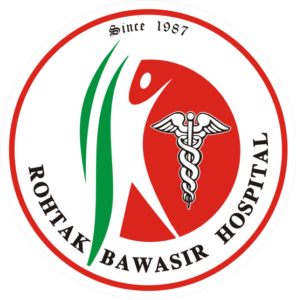Self-Help to Get Relief from Irritation or Pain Related to Piles?


Updated on: 4th Jun 2024
Hemorrhoids, or piles, are enlarged veins in the lower rectum and anus that frequently cause pain, discomfort, and irritability. In severe cases, medical intervention is necessary, although there are several self-help techniques that can offer substantial relief and aid in symptom management. This blog examines different self-care techniques to lessen the discomfort brought on by piles.
Understanding Piles
Before diving into self-help remedies, it’s important to understand what piles are and what causes them. Both internal and exterior piles are possible (within the rectum) (under the skin around the anus). Typical signs and symptoms include of:
- Pain or discomfort, especially during bowel movements
- Itching or irritation around the anal region
- Swelling around the anus
- Bleeding during bowel movements
Prolonged sitting, a low-fiber diet, obesity, straining during bowel movements, and persistent constipation are all factors that might lead to the formation of piles.
Self-Help Strategies for Relief

1. Dietary Changes
Increase Fiber Intake: A high-fiber diet can aid in softening feces, easing passage and minimizing the need for straining. Incorporate foods like:
- Whole grains (oats, brown rice, whole wheat)
- Fruits (apples, pears, berries)
- Vegetables (broccoli, carrots, leafy greens)
- Legumes (beans, lentils, chickpeas)
Stay Hydrated: Staying hydrated is essential. Try to drink eight glasses of water or more each day to assist maintain soft stools.
2. Regular Exercise
Constipation can be avoided and vein pressure can be decreased with regular exercise. Exercises like yoga, swimming, and walking are good for you.
3. Proper Bathroom Habits
- Avoid Straining: Restrained bowel movements might make piles worse. Don’t rush things and don’t exert too much pressure.
- Don’t Delay: Give in to the impulse to go potty right away. Stools can get more challenging and challenging to pass if you wait.
- Use a Squatting Position: When sitting on the toilet, elevating your feet with a tiny stool can help align the rectum to facilitate better bowel movements.
4. Topical Treatments and Sitz Baths
- Topical Treatments: Temporary pain and itching relief can be obtained using over-the-counter lotions and ointments. Seek for products that include witch hazel or hydrocortisone.
- Sitz Baths: Reducing swelling and discomfort can be achieved by soaking the anal area many times a day in warm water for 15 to 20 minutes, especially after bowel movements.
5. Cold Compresses
Applying ice packs or cold packs that have been wrapped in a cloth to the injured region might help numb the pain and reduce swelling. One to ten minutes at a time, use.
6. Avoid Irritants
Steer clear of perfumed toilet paper and soaps since these can irritate the anal region. Select gentle, unscented products.
7. Wear Loose, Comfortable Clothing
Cotton undergarments and clothes that fit loosely might help keep the anal area dry and less irritated.
8. Pain Relievers
Pain can be managed with over-the-counter medications like ibuprofen or acetaminophen. However, before taking any drug, speak with your physician.
When to See a Doctor
Even if self-help techniques can offer substantial comfort, it’s crucial to speak with a healthcare provider if:
- There is persistent bleeding
- The pain is severe
- Home treatments do not provide relief
- You notice any unusual symptoms
Prompt intervention helps avert issues and provide suitable medical care.
Meet Our Specialists

Dr. Raj Kumar Garg (B.A.M.S.)
40+ Years of Experience

Dr. Rahul Garg (B.A.M.S.)
15+ Years of Experience
Conclusion
It’s common for pile management to involve dietary adjustments, good toilet habits, and other self-care practices. You can greatly lessen the pain and discomfort brought on by piles by implementing these techniques into your regular practice. Never forget to seek professional medical advice if your symptoms intensify or persist in order to make sure you receive the right care.

